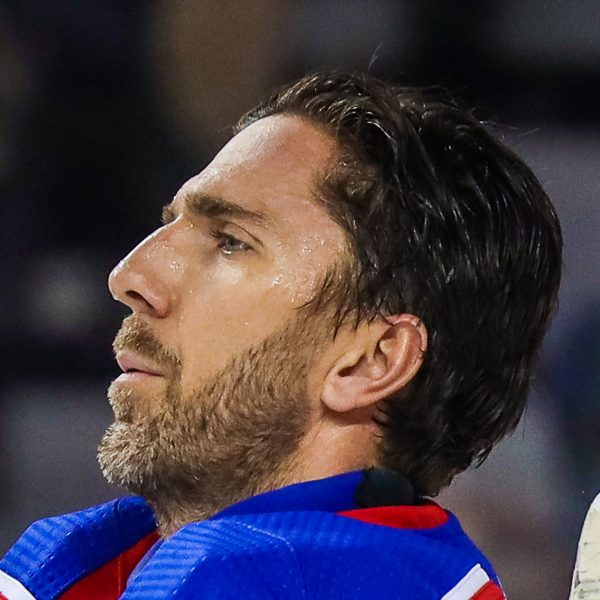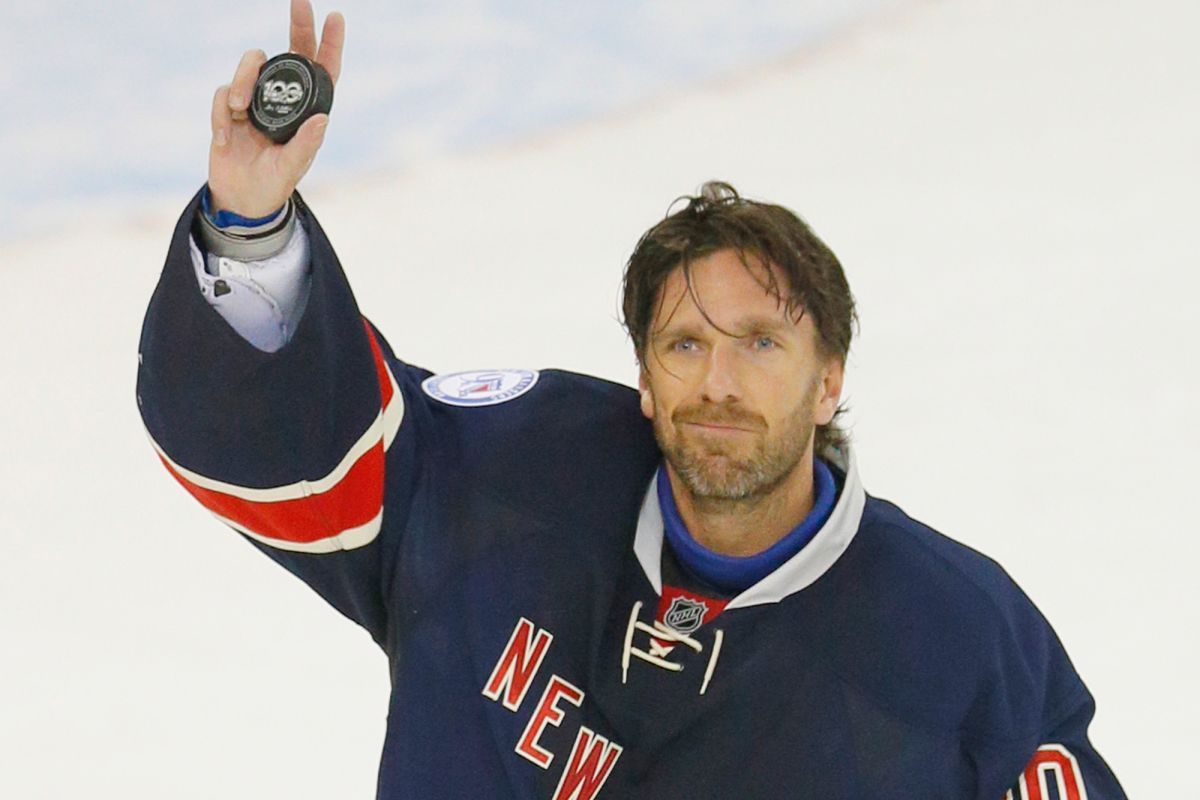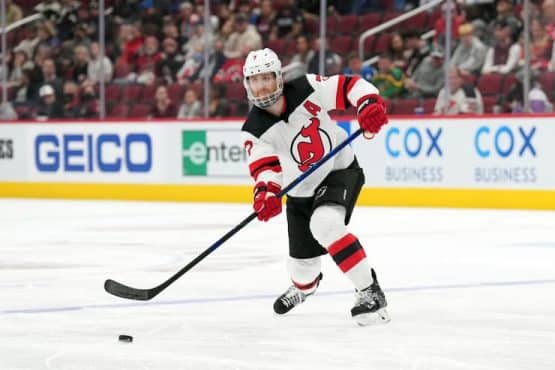When Henrik Lundqvist signed a one-year deal with the Washington Capitals after being bought out by the New York Rangers, it seemed like the perfect fit for him, giving the 38-year-old an opportunity to chance that one piece of hardware missing from his illustrious resume.
The King seemed happy in his new home, sharing video of him and his two young daughters dancing in the street in Washington, D.C., showing off the new designs of his equipment to match his new uniform. After 15 years in Rangers blue, it was odd to see images of him on the ice in the practice jersey for a Metropolitan Division rival. Little did anyone know that they would never have the chance to see him in-game action in a Caps’ sweater.
It’s amazing how fast things can change, literally, in a heartbeat.
Just over two months after signing the contract, the Capitals released a 95-second video of Lundqvist announcing that, after several weeks of undergoing tests for a heart condition, consulting doctors across the country and receiving test results, that he would not be able to play the 2021 season.
After the news broke, Capitals’ General Manager Brian McLellan revealed that it was a condition Lundqvist had dealt with his entire career and had 0been able to manage up until this point. A routine physical led to further evaluations that ultimately let to the determination that he could not play.
With the hockey world still digesting the news and the Capitals moving to plan B for their crease, Lundqvist shared even more stunning news on his social media accounts the morning of December 27th, revealing that he would be undergoing open-heart surgery.
— Henrik Lundqvist (@HLundqvist) December 28, 2020
On December 29th, Dr. George Vertes, a cardiologist in Toronto, joined host Dave McCarthy on SiriusXM NHL Network Radio’s “NHL Morning Skate” program to provide his insight into Lundqvist’s condition, the surgery and his prognosis.
Dr. Vertes explained that the several-hours long operation Lundqvist will undergo is about as major as open-heart surgery gets. The valve and aorta will be replaced, and then the coronary arteries will be re-implanted into the replacements. In terms of recovery time, patients spend about one week in the hospital and a return to normal life could take two-to-three months, depending also on the type of work the patient does – the more physical a job, the longer it will take. Dr. Vertes also noted that the sternum, cracked open to access the heart, is wired together after the surgery, and takes about six-to-eight weeks to heal.
The normal activities of daily living – walking exercising, working out would be OK. When asked by McCarthy if, in his opinion, if it would be prudent for Lundqvist to resume his NHL career, Dr. Vertes said, “No.I wouldn’t. You know I’ve had patients who have had this type of surgery and we pretty much restricted them from doing any kind of sports – skiing, hockey, anything where there can be a significant injury to the chest, falling down. That kind of thing can compromise what has been done.”
This is the opinion of one medical professional with experience in this area. Ultimately, it will be up to Lundqvist and his own medical team to decide what path is best for him to take going forward after his surgery, but signs do seem to point to his NHL career coming to a close. As difficult as it is to imagine him not going out on his own terms, given what a fierce competitor he is, if the risk is too great then retiring would be the right thing to do. He’s quite fortunate that this is something that was diagnosed in the offseason, and that he did not potentially suffer a cardiac event on the ice. While old in “athlete years,” there’s still a lot of life in “human years” ahead of him, and with a wife and two young daughters, his long-term health has to undoubtedly take priority. It just seems like a cruel twist of fate that someone who always left his metaphorical heart on the ice night-in-and-night-out has been betrayed by his actual heart.
Even without that elusive Stanley Cup, his statistics and accomplishments both in the NHL and in international play should be done.”
This is the opinion of one medical professional with experience in this area. Ultimately, it will be up to Lundqvist and his own medical team to decide what path is best for him to take going forward after his surgery, but signs do seem to point to his NHL career coming to a close. As difficult as it is to imagine him not going out on his own terms, given what a fierce competitor he is, if the risk is too great then retiring would be the right thing to do. He’s quite fortunate that this is something that was diagnosed in the offseason, and that he did not potentially suffer a cardiac event on the ice. While old in “athlete years,” there’s still a lot of life in “human years” ahead of him, and with a wife and two young daughters, his long-term health has to undoubtedly take priority. It just seems like a cruel twist of fate that someone who always left his metaphorical heart on the ice night-in-and-night-out has been betrayed by his actual heart.
Even without that elusive Stanley Cup, his statistics and accomplishments both in the NHL and in international play should be more than enough to secure him a spot in the Hockey Hall of Fame when the time comes.
Follow us on Twitter @NHLShout and “Like” us on Facebook. You can also email us at [email protected].
Add The Sports Daily to your Google News Feed!








